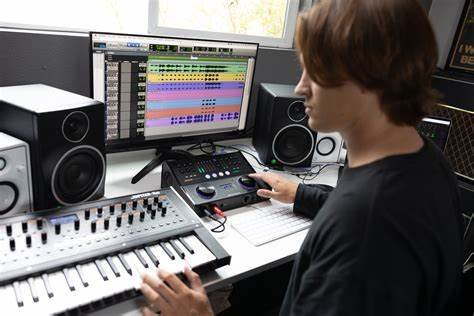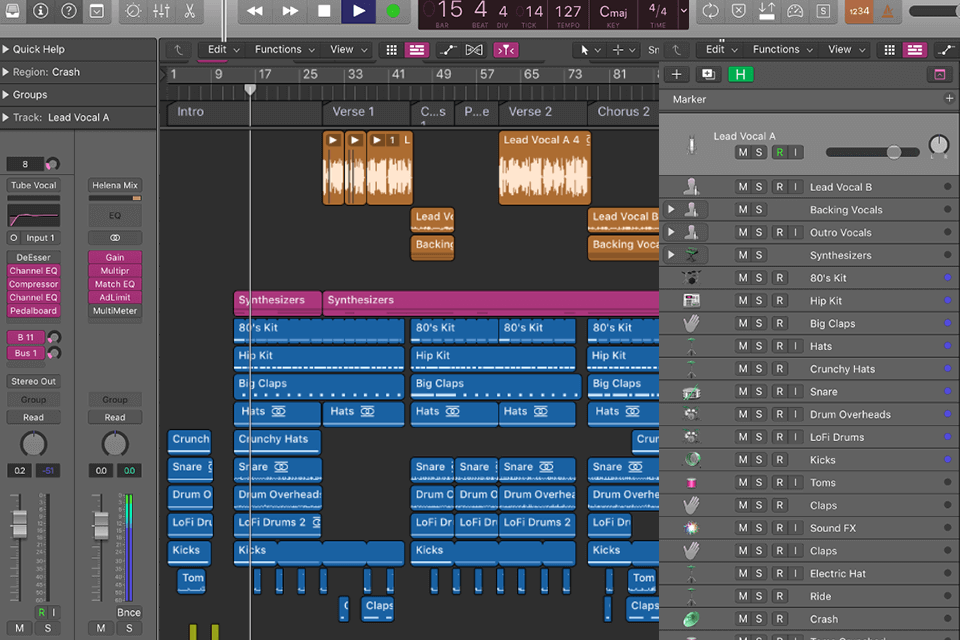Being a successful music producer requires a blend of technical knowledge, creative talent, and interpersonal skills. Producers are responsible for creating hit tracks, managing artists, and ensuring a song’s overall quality. Here’s a guide to the key skills every music producer should master.
1. Technical Proficiency
Music production relies heavily on understanding the tools and technology involved.
- DAW Mastery: Producers must be proficient in digital audio workstations (DAWs) like Ableton Live, Logic Pro, or FL Studio.
- Audio Engineering: Knowledge of sound design, mixing, and mastering is essential to produce high-quality tracks.
- Equipment Knowledge: Familiarity with microphones, mixers, and recording hardware is crucial for studio work.
2. Creative Vision
A producer needs a unique artistic perspective to create memorable music.
- Song Arrangement: Knowing how to structure songs for maximum impact is critical.
- Experimentation: The ability to try new sounds and innovate keeps the music fresh and engaging.
- Understanding Genres: Producers must adapt their creative approach to different music styles.
3. Musical Knowledge
A strong foundation in music theory and performance enhances a producer’s versatility.
- Instrument Skills: Playing instruments like piano, guitar, or drums can aid in composing and arranging.
- Music Theory: Understanding scales, chords, and harmony helps craft compelling melodies.
- Beat Creation: Producers often need to build rhythm sections tailored to the track’s vibe.
4. Collaboration and Communication
Producers work closely with artists, engineers, and labels. Good communication ensures everyone is aligned.
- Active Listening: Understanding the artist’s vision and incorporating feedback is vital.
- Team Coordination: Producers manage teams to ensure smooth workflow and productivity.
- Negotiation Skills: They often bridge the gap between creative and business goals.
5. Project Management
Producers are responsible for keeping projects on track and within budget.
- Time Management: Meeting deadlines is essential in the fast-paced music industry.
- Budgeting: Producers often oversee costs for studio time, equipment, and personnel.
- Organization: Keeping track of multiple projects and schedules requires strong organizational skills.
6. Problem-Solving Ability
Unexpected challenges are common in music production.
- Adaptability: Producers must adjust plans quickly during recording sessions or technical hiccups.
- Creative Solutions: They often find innovative ways to overcome artistic or technical hurdles.
- Conflict Resolution: Managing disagreements within the team ensures progress.
7. Industry Knowledge
Understanding the music industry landscape helps producers navigate their careers effectively.
- Trends Awareness: Staying up-to-date on genre trends and technology ensures relevance.
- Marketing Insight: Knowing how to promote music and reach audiences is invaluable.
- Networking: Building relationships with artists, labels, and other professionals expands opportunities.
8. Attention to Detail
The small details often make or break a track.
- Sound Quality: Producers must ensure clarity, balance, and dynamics in every song.
- Consistency: Maintaining a cohesive sound across a project is essential.
- Precision: From tuning vocals to timing beats, every element matters.
Conclusion
Music production demands a multifaceted skill set. By mastering technical tools, fostering creativity, and honing interpersonal skills, producers can craft tracks that resonate with audiences and succeed in the competitive music industry. Whether you’re just starting or aiming to refine your craft, these skills form the foundation of a successful career in music production.











